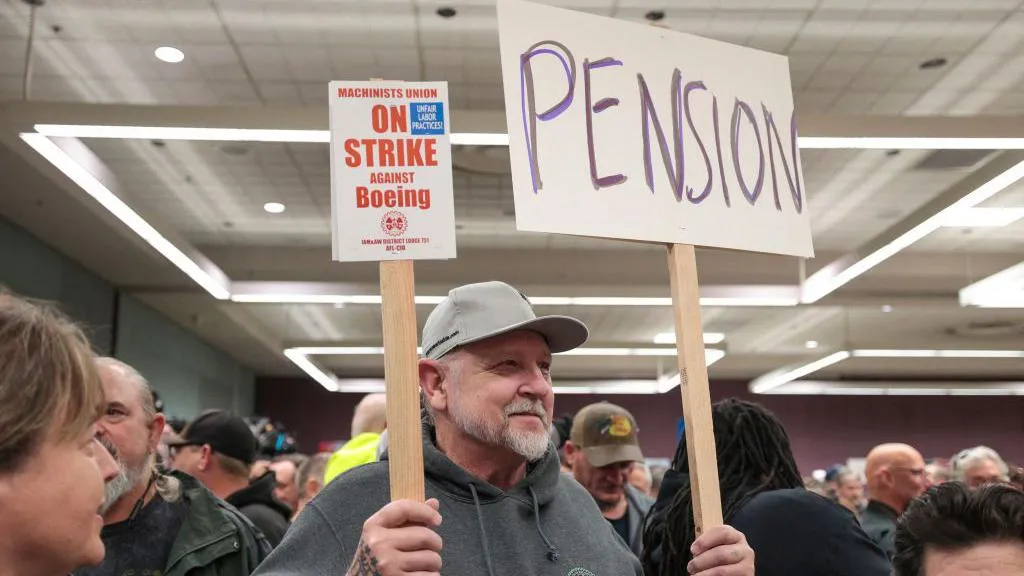Boeing Workers to Decide on 35% Pay Increase Proposal Amid Ongoing Strike
3 min read

Boeing has put forth a proposal offering striking machinists a 35% pay increase over four years, aiming to resolve a month-long strike that has significantly impacted its operations. Approximately 33,000 unionized workers, predominantly located in Seattle, are set to vote on this proposal on Wednesday.
The strike, which began on September 14, has halted production of key aircraft models, including the 737 MAX, 767, and 777. The work stoppage has taken a toll on Boeing’s financial performance, prompting the company to seek an additional $35 billion in funding to stabilize its operations. Additionally, Boeing has announced plans to lay off around 17,000 employees—about 10% of its workforce—starting in November.
“The future of this contract is in your hands,” the union urged its members over the weekend. Previously, the union had rejected an offer that included a 30% pay increase, arguing that it did not sufficiently address rising costs of living.
Initially, the union aimed for a 40% salary increase along with the reinstatement of a defined-benefits pension plan, which would guarantee a specific income for retirees. Although Boeing’s latest offer brings the pay increase closer to the union’s demands, it still lacks the defined-benefits pension.
The current proposal includes a one-time bonus of $7,000 (£5,365) for workers who accept the deal, as well as reinstated incentive plans and improved contributions to retirement savings. This encompasses a one-time contribution of $5,000, alongside potential employer contributions of up to 12%, according to the International Association of Machinists and Aerospace Workers Local 751.
The strike has garnered attention from the Biden administration, with Acting U.S. Labor Secretary Julie Su meeting with both union representatives and Boeing executives in Seattle this week. The administration is keen on a swift resolution, recognizing Boeing’s significant role in the U.S. economy.
Boeing has faced increased scrutiny following a January incident in which a defect caused a panel to blow out on a new Alaska Airlines 737 MAX shortly after takeoff. The Federal Aviation Administration (FAA) has since restricted Boeing from ramping up production and has initiated a new safety inquiry into the company.
In a notable legal development, Boeing agreed in July to plead guilty to a criminal fraud conspiracy charge, resulting in a payment of at least $243.6 million (£187 million). This charge stemmed from a breach of a deferred prosecution agreement established in 2021, relating to two 737 MAX accidents that claimed 346 lives over five years ago.
As workers prepare to cast their votes on the new contract proposal, the outcome could have significant implications for both the employees and the company. A successful agreement could restore production and alleviate some of the financial pressures facing Boeing, while a rejection could prolong the strike and further strain the company’s operations. The union’s leadership has emphasized the importance of solidarity among workers during this pivotal moment.
As the deadline for voting approaches, both sides remain under considerable pressure to reach a resolution. The outcome of this vote will not only affect the livelihoods of thousands of workers but could also play a crucial role in the future stability of Boeing as it navigates through these challenging circumstances.